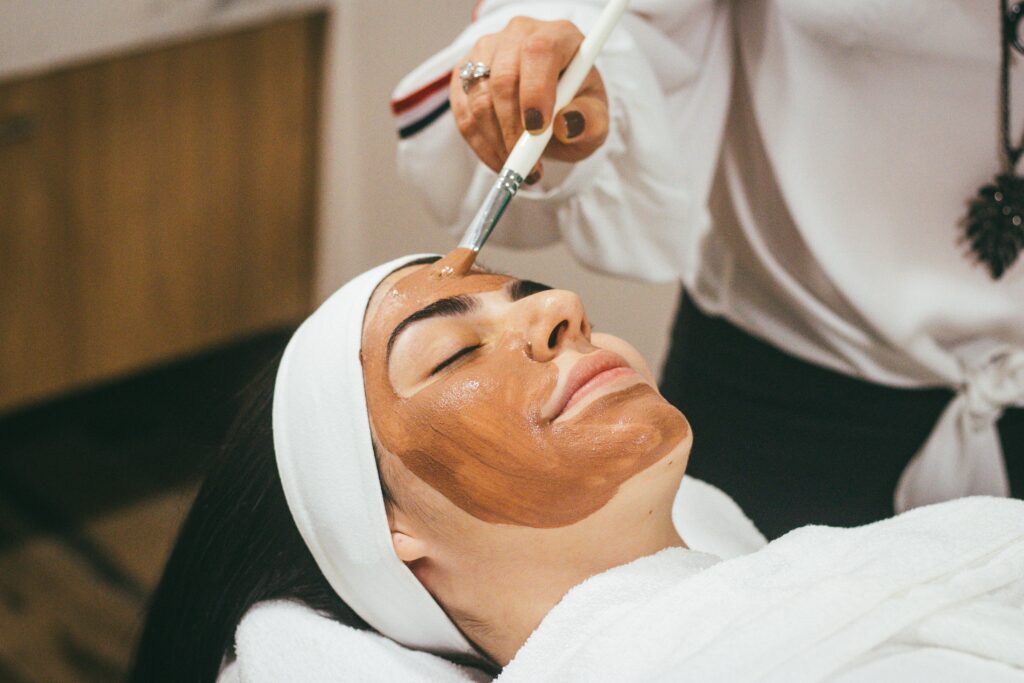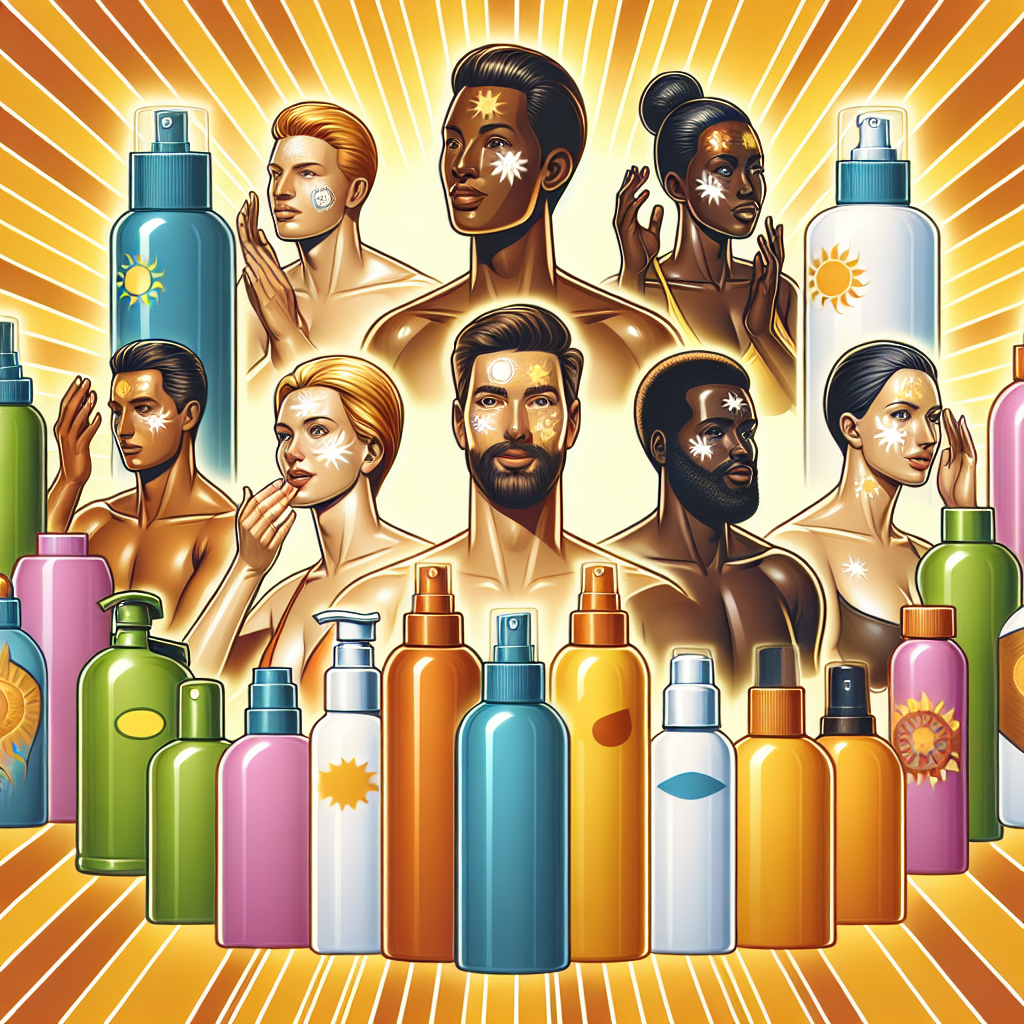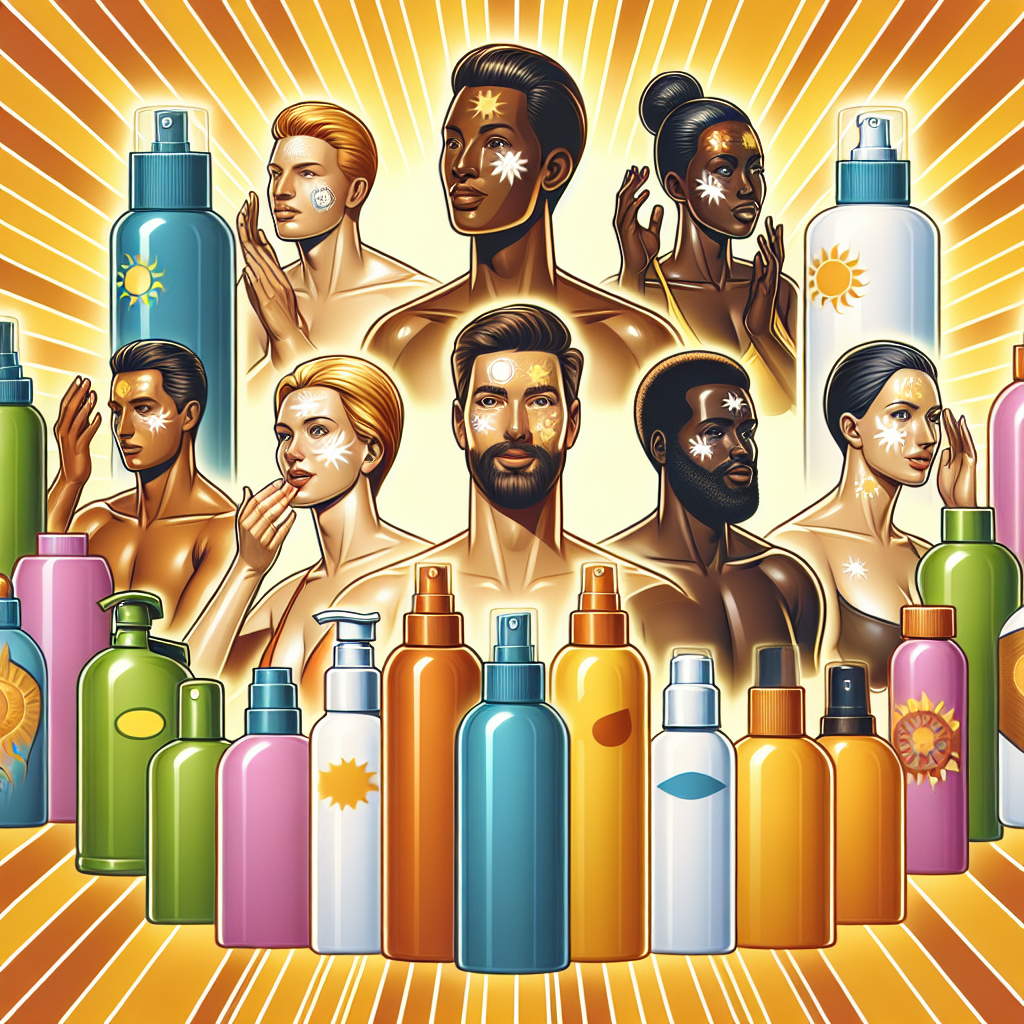Have you ever wondered about the significance of sunscreen in your skincare routine? As we all know, maintaining healthy skin is essential, but what role does sunscreen play? In this article, we will explore the importance of sunscreen and how it protects your skin from harmful UV rays, preventing sun damage and premature aging. So, let’s uncover the secret behind a successful skincare routine and the vital role sunscreen plays in keeping your skin radiant and youthful.

The Role of Sunscreen in Skin Health
Sunscreen plays a crucial role in maintaining healthy skin by providing protection against harmful UV rays, preventing sunburn and skin damage, and reducing the risk of skin cancer. It also has anti-aging benefits, acts as a protective barrier against environmental factors, and is essential for maintaining different skin types. Choosing the right sunscreen and incorporating it into a skincare routine are equally important. In this article, we will explore the significance of sunscreen in depth and provide useful tips for sun protection.
Protection Against Harmful UV Rays
One of the primary functions of sunscreen is to shield the skin against the detrimental effects of ultraviolet (UV) rays from the sun. UV rays consist of UVA and UVB rays, both of which can cause significant damage to the skin. UVA rays penetrate deep into the skin, leading to premature aging, while UVB rays primarily affect the outer layers, causing sunburn. The regular use of sunscreen with a high SPF (Sun Protection Factor) can significantly reduce the harmful effects of UV rays, keeping your skin health intact.
Prevention of Sunburn and Skin Damage
Sunburn is not only uncomfortable, but it can also cause long-lasting damage to the skin. Sunburn occurs when the skin is overexposed to UVB rays, resulting in redness, pain, and often peeling. Continuous sunburns can lead to permanent damage, such as wrinkles, dark spots, and an increased risk of skin cancer. By applying sunscreen with proper SPF, you create a protective barrier that helps prevent sunburn and subsequent skin damage.
Reduction of the Risk of Skin Cancer
Skin cancer is a significant concern worldwide, and excessive sun exposure is one of the leading causes. Unprotected exposure to UV radiation increases the risk of developing skin cancer, including melanoma, the most aggressive form. However, regular use of sunscreen can significantly decrease this risk. By blocking the harmful UV rays, sunscreen acts as a crucial defense against developing skin cancer and promotes long-term skin health.
Sunscreen and Anti-Aging
Prevention of Premature Aging
Premature aging is a common concern among many individuals, and prolonged sun exposure is one of the primary contributors. UVA rays can penetrate the skin’s deeper layers, damaging collagen and elastin fibers responsible for maintaining skin’s firmness and elasticity. Over time, this leads to the formation of wrinkles, fine lines, and sagging skin. By wearing sunscreen daily, you can protect your skin from the harmful effects of UVA rays, preventing premature aging and preserving a youthful appearance.
Minimization of Fine Lines and Wrinkles
Fine lines and wrinkles are visible signs of aging that can be minimized and slowed down with the help of sunscreen. As mentioned earlier, UVA rays can damage collagen and elastin fibers, causing the skin to lose its elasticity. By protecting your skin from these harmful rays, sunscreen helps reduce the formation of fine lines and wrinkles, keeping your skin smoother and more youthful-looking.
Preservation of Skin Elasticity
Skin elasticity is essential for maintaining a youthful appearance. Exposure to the sun’s harmful UV rays can weaken the skin’s elasticity over time, leading to sagging and drooping. Sunscreen acts as a protective barrier that helps maintain skin elasticity by shielding it from the damaging effects of UVA rays. By including sunscreen in your daily skincare routine, you can preserve your skin’s firmness and delay the signs of aging.
Sunscreen as a Protective Barrier
Shielding Against Environmental Factors
In addition to protecting against harmful UV rays, sunscreen provides a shield against environmental factors that can harm the skin. Factors such as pollution, smoke, and free radicals can cause oxidative stress on the skin, leading to premature aging and skin damage. By applying sunscreen, you create a barrier that prevents these harmful environmental factors from penetrating the skin, helping to maintain its health and radiance.
Prevention of Hyperpigmentation
Hyperpigmentation refers to the darkening of certain areas of the skin, often caused by excessive sun exposure. Sunscreen plays a crucial role in preventing hyperpigmentation by blocking the UV rays responsible for triggering the production of melanin, the pigment that gives color to the skin. By using sunscreen daily, you can effectively reduce the risk of developing uneven skin tone, dark spots, and other forms of hyperpigmentation.
Protection for Sensitive Skin
Individuals with sensitive skin often struggle to find suitable skincare products that do not irritate or cause allergic reactions. Sunscreen formulated for sensitive skin can be a game-changer. These sunscreens are specifically designed to be gentle and non-irritating, providing effective sun protection without causing any adverse effects. By incorporating sunscreen for sensitive skin into your routine, you can protect your skin from both UV damage and potential irritants.
Choosing the Right Sunscreen
SPF (Sun Protection Factor) Considerations
When choosing sunscreen, considering the SPF (Sun Protection Factor) is essential. The SPF indicates the level of protection the sunscreen provides against UVB rays specifically. Higher SPF values offer greater protection. However, it’s important to note that SPF only measures protection against UVB rays, not UVA rays. Therefore, it is crucial to choose a broad-spectrum sunscreen that protects against both UVA and UVB rays.
Broad-Spectrum Protection
Broad-spectrum sunscreens offer protection against both UVA and UVB rays, making them a crucial choice for comprehensive sun protection. UVA rays contribute to premature aging, while UVB rays cause sunburn. Using a broad-spectrum sunscreen ensures that your skin is shielded from both types of harmful radiation, minimizing the risk of sunburn, premature aging, and skin damage.
Water and Sweat Resistance
If you plan on participating in water activities or exercising outdoors, it is important to choose a sunscreen that is water and sweat-resistant. These sunscreens are formulated to adhere to the skin even when exposed to water or excessive sweating. By opting for water and sweat-resistant sunscreens, you can ensure that your skin remains protected even in high humidity or during physical activities.
Physical vs. Chemical Sunscreens
Sunscreen formulations can be broadly categorized into physical and chemical sunscreens. Physical sunscreens contain mineral filters like titanium dioxide or zinc oxide, which sit on the surface of the skin and physically block UV rays. On the other hand, chemical sunscreens work by absorbing UV rays and converting them into heat. Both types can provide effective sun protection, so choosing between them often comes down to personal preference and skin sensitivity.

Incorporating Sunscreen into a Skincare Routine
Application Before Sun Exposure
To derive the maximum benefits from sunscreen, it is crucial to apply it before sun exposure. Applying sunscreen at least 15-30 minutes before venturing outdoors allows it to fully bind to the skin and provide optimal protection. This waiting period also ensures that the sunscreen has time to form a protective barrier, reducing the risk of sunburn and other forms of skin damage.
Reapplication Throughout the Day
Regardless of the SPF or water-resistance of your sunscreen, it is important to reapply it throughout the day, especially if you are spending an extended period outdoors. Regular reapplication, ideally every two hours or as instructed on the product label, helps maintain consistent sun protection. Factors such as sweating, swimming, and wiping the face can also diminish the effectiveness of sunscreen, making reapplication essential.
Combining Sunscreen with Moisturizer and Makeup
Incorporating sunscreen into your daily skincare routine does not have to be complicated. Many moisturizers and foundations now contain SPF, making it easier to combine sun protection with your regular skincare and makeup routine. Look for products labeled as “broad-spectrum” or “SPF-infused” to ensure comprehensive protection. However, keep in mind that relying solely on these products may not provide enough sun protection, so using a dedicated sunscreen is often recommended.
Sunscreen and Different Skin Types
Sunscreen for Dry Skin
Individuals with dry skin can benefit from using moisturizing sunscreens. These sunscreens are often formulated with hydrating ingredients like hyaluronic acid or ceramides to provide much-needed moisture to the skin. Opt for sunscreens with a creamy or lotion-like texture, as they can help combat dryness and keep the skin nourished and protected throughout the day.
Sunscreen for Oily and Acne-Prone Skin
For those with oily or acne-prone skin, lightweight and non-comedogenic (non-pore-clogging) sunscreen formulations are recommended. Look for oil-free or gel-based sunscreens that offer a mattifying effect. These sunscreens will provide sun protection without adding excess oil or clogging the pores, reducing the likelihood of breakouts and keeping the skin shine-free.
Sunscreen for Sensitive Skin
Sensitive skin requires extra care when it comes to sun protection. Opting for sunscreens specifically formulated for sensitive skin can help minimize the risk of irritation or allergic reactions. Look for products labeled as hypoallergenic, fragrance-free, and gentle on the skin. Physical sunscreens, containing mineral filters, are often a better option for sensitive skin, as they are less likely to cause irritation.

Common Misconceptions About Sunscreen
Dark Skin and Sunscreen
A common misconception is that individuals with darker skin tones do not need to wear sunscreen. While it is true that melanin in the skin provides some natural protection against UV rays, it is not enough to rely solely on this. Dark-skinned individuals are still at risk of developing sunburn, skin damage, and skin cancer. They should also wear sunscreen with a minimum SPF of 30 and ensure it provides broad-spectrum protection.
Cloudy Days and Sunscreen
Another widespread misconception is that sunscreen is only necessary on sunny days. However, UV rays can penetrate through clouds and even on overcast days. Therefore, wearing sunscreen should be part of a daily skincare routine, regardless of the weather conditions. By applying sunscreen every day, you provide consistent protection against harmful UV rays and prioritize your long-term skin health.
Indoor Activities and Sunscreen
Many individuals believe that if they spend most of their time indoors, they do not need to apply sunscreen. However, indoor activities do not provide complete protection against UV rays, as they can still enter through windows and other openings. Additionally, exposure to blue light emitted by electronic screens can also contribute to skin damage. Incorporating sunscreen into your daily routine remains important, even if you spend the majority of your time indoors.
Best Practices for Sun Protection
Avoiding Peak Sun Hours
One of the simplest yet most effective ways to protect your skin from harmful UV rays is by avoiding sun exposure during peak hours, typically between 10 am and 4 pm. During these hours, the sun’s rays are the strongest, making it crucial to seek shade and limit direct sun exposure. If going outdoors is necessary, wearing protective clothing and applying sunscreen becomes even more important.
Wearing Protective Clothing
In addition to sunscreen, wearing protective clothing can significantly enhance sun protection. Opt for loose-fitting, long-sleeved shirts and pants made from tightly woven fabrics to block UV rays effectively. Wide-brimmed hats that shade the face, neck, and ears, as well as UV-blocking sunglasses, also provide additional protection. By adopting these protective measures, you create a comprehensive defense against sun damage.
Using Additional Sun Protection Measures
While sunscreen is an essential aspect of sun protection, using additional measures can further enhance its effectiveness. Seeking shade when possible, using umbrellas or canopies, and using physical barriers like beach tents provide an added layer of protection against UV rays. Combining these measures with regular sunscreen use ensures comprehensive sun protection and minimizes the risk of skin damage.

Sunscreen Application Tips
Using Adequate Amounts
To ensure proper coverage, it’s important to use an adequate amount of sunscreen. The commonly recommended amount is approximately a teaspoon for the face and a shot glass worth for the body. Applying too little sunscreen may result in uneven protection, leaving some areas of the skin more vulnerable to damage. Be generous when applying sunscreen to ensure full coverage and optimal sun protection.
Applying Evenly
Applying sunscreen evenly is crucial for uniform protection. Take the time to spread the sunscreen thoroughly across your face and body, paying attention to often neglected areas like the ears, neck, and back of the hands. Gently massage the sunscreen into the skin, ensuring it is fully absorbed and providing a protective barrier against UV rays.
Covering Neglected Areas
As mentioned earlier, certain areas of the body are often neglected when applying sunscreen. The ears, back of the neck, tops of the feet, and lips are particularly susceptible to sunburn and skin damage. When applying sunscreen, make a conscious effort to cover these often forgotten areas to ensure they receive the same level of protection as the rest of your body.
Paying Attention to Expiration Dates
Sunscreen effectiveness can diminish over time, so it is essential to check the expiration dates on the products you use. Expired sunscreens may not provide adequate sun protection, rendering them less effective in shielding the skin from harmful UV rays. To maintain optimal sun protection, replace your sunscreen regularly, especially if it has expired or if you notice any changes in its texture or smell.
The Bottom Line
Sunscreen is an indispensable component of any skincare routine and should be an integral part of everyone’s daily life. From protecting against harmful UV rays and preventing sunburn to reducing the risk of skin cancer and preserving skin’s youthful appearance, its benefits are undeniable. Furthermore, sunscreen acts as a protective barrier, shields against environmental factors, and is vital for different skin types. By choosing the right sunscreen, incorporating it into a skincare routine, and following best practices for sun protection, you can prioritize your long-term skin health and enjoy the outdoors with confidence. Remember, sunscreen is not just a seasonal product; it is a necessity that should be used year-round to protect your skin and promote overall well-being.






